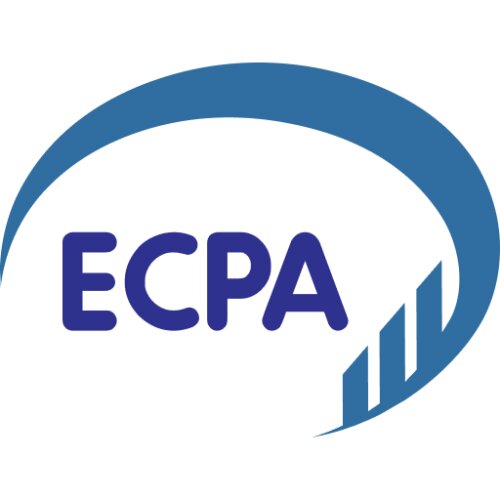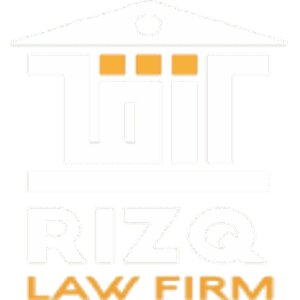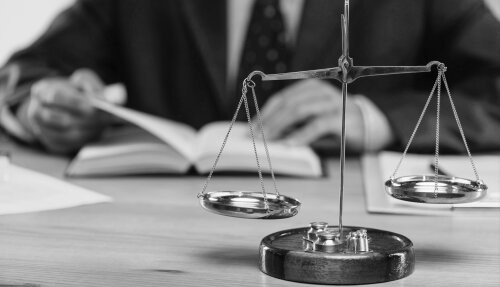Best Transportation Lawyers in Heliopolis
Share your needs with us, get contacted by law firms.
Free. Takes 2 min.
List of the best lawyers in Heliopolis, Egypt
About Transportation Law in Heliopolis, Egypt
Transportation law in Heliopolis sits at the intersection of national Egyptian traffic and transport rules and local administration and enforcement in the Cairo metropolitan area. Heliopolis is a densely populated district of Greater Cairo with heavy everyday use of private cars, taxis, microbuses, buses, ride-hailing services, commercial vehicles and access to Cairo International Airport. Legal issues commonly involve traffic violations, accident liability, passenger rights, vehicle registration and licensing, commercial transport permits, insurance claims and administrative enforcement by traffic authorities.
Why You May Need a Lawyer
You may need a lawyer for transportation matters when the legal issue is complex, when your financial exposure is significant, or when criminal or administrative penalties are possible. Typical situations include:
- Traffic accidents with serious injury or death where civil damages or criminal charges may follow.
- Disputes with insurance companies over liability or the amount of compensation.
- Challenging fines, license suspensions, vehicle impoundment or administrative decisions by traffic authorities or municipal bodies.
- Commercial transport matters such as permits, contracts, compliance with vehicle safety and weight rules, and enforcement actions against fleet operators.
- Passenger claims against taxi drivers, ride-hailing platforms or public transport operators for injury, theft or breach of contract.
- Criminal allegations involving driving under the influence, reckless driving or other offenses that can lead to prosecution.
Local Laws Overview
Transportation in Heliopolis is governed mainly by national traffic and transport legislation, applied and enforced by local traffic directorates and police units. Key aspects to understand include:
- Traffic rules and driver licensing - The national traffic code sets rules for road behavior, licensing requirements, vehicle inspections, and penalties for violations. Local traffic police carry out enforcement, issue fines and handle accident reporting.
- Vehicle registration and insurance - Vehicles must be registered and carry the required documents. Motor vehicle insurance - especially third-party liability cover - is essential for handling claims after accidents. Insurance terms and claim procedures may affect compensation timelines.
- Accident reporting and evidence - When collisions occur, police reports and medical or forensic reports are often decisive in civil and criminal cases. Timely evidence collection - photos, witness details and official reports - strengthens claims or defenses.
- Criminal liability - Driving conduct that causes serious injury or death, driving under the influence, or other reckless acts can lead to criminal investigation by the public prosecution and possible trial in criminal courts.
- Administrative actions - Authorities can impose on-the-spot fines, suspend or revoke driving licenses, and impound vehicles for violations. Administrative appeals or judicial review may be available.
- Commercial transport regulation - Freight and passenger transport by businesses are subject to additional licensing, safety, and insurance obligations. Special permits may be required for oversized loads, hazardous materials and public passenger services.
Frequently Asked Questions
What should I do immediately after a road accident in Heliopolis?
First ensure safety - move to a safe area if possible and seek medical help for anyone injured. Call the traffic police so an official report is prepared. Collect basic evidence - take photos of vehicle positions and damage, note the time and place, get contact details for other drivers and witnesses and keep medical records. Notify your insurer promptly. If injuries are serious, you should also consult a lawyer early to protect your legal rights.
Do I need a police report to make an insurance claim?
Yes - an official traffic police report or incident report is usually essential for insurance claims and for civil or criminal proceedings. The report establishes the basic facts and is often relied on by insurers and courts. Keep a copy for yourself and provide it to your lawyer and insurer.
Can I challenge a traffic fine or license suspension?
Yes - you can contest fines and administrative sanctions. There are administrative review and appeal procedures available through traffic directorates and sometimes through competent administrative courts. Timelines for appeals vary, so act quickly and consider consulting a lawyer who can advise on procedure and represent you in appeals.
How does liability get determined after an accident?
Liability is determined by evidence - police reports, witness testimony, photographic evidence, expert assessments of vehicle damage and forensic or medical reports. Comparative fault may be considered if more than one party contributed to the accident. Insurers will perform their own investigations, but a court decision will be binding if the case proceeds to litigation.
What compensation can I claim for injuries or vehicle damage?
Compensation may include medical expenses, rehabilitation costs, loss of earnings, pain and suffering and property damage. For serious injuries there may be claims for long-term care and reduced earning capacity. The exact amounts depend on the evidence, medical reports and legal arguments. Insurance policy limits and fault allocation also affect recoverable amounts.
What if the other driver has no insurance or is uninsured?
Uninsured drivers complicate recovery. If the other driver is uninsured, you may pursue a civil claim directly against them for damages. Your own insurance policy may have provisions for uninsured motorist protection - check your policy or speak to your insurer. A lawyer can help explore options including pursuing the person through civil courts.
Are ride-hailing services like Uber or Careem treated differently under the law?
Ride-hailing services operate under a mix of consumer, transport and commercial rules. Passenger claims for injury or theft can involve the driver, the platform and the insurer. The platform may have contractual terms and insurance coverage for drivers while logged on. Resolving disputes can require contacting the platform, the driver and insurers and, if necessary, pursuing civil claims. Legal approaches vary depending on whether the issue is contractual, tort-based or regulatory.
What happens if someone is injured and the case involves criminal behavior?
If an accident involves criminal conduct - for example driving under the influence, reckless driving or hit-and-run - the public prosecution can open a criminal investigation. Criminal proceedings run parallel to any civil claim for damages. You should report the facts to police and the public prosecution, preserve evidence and consult a lawyer experienced in both criminal and civil procedure.
How long will a transportation case take to resolve?
Timelines vary greatly - some claims settle quickly through insurer negotiations or mediation, while contested civil suits or criminal trials can take months or longer. Administrative appeals also have varying timelines. Acting promptly, having complete evidence and working with an experienced lawyer can shorten the process and improve the chance of a favorable outcome.
How do I find a lawyer who handles transportation and traffic matters in Heliopolis?
Look for lawyers with experience in traffic law, personal injury, insurance disputes and administrative or criminal defense related to transport. You can contact the local Bar Association for referrals, seek recommendations from trusted sources, or ask law firms about their track record with similar cases. When choosing a lawyer, discuss fees, likely timelines, evidence needed and strategy before you commit.
Additional Resources
Useful bodies and resources to consult include:
- Traffic Directorate - local traffic police units handle accident reporting, fines and on-the-spot enforcement.
- Public Prosecution - for criminal investigations arising from serious traffic incidents.
- Ministry of Transport - general transport policy, commercial transport permits and infrastructure issues.
- Cairo Governorate - local municipal and administrative offices that may deal with licensing, permits and local transport regulations in Heliopolis.
- Egyptian General Authority for Roads, Bridges and Land Transport - for rules and standards related to road safety and commercial transport.
- Airports and Railway Authorities - for issues involving air or rail transport, in particular Cairo International Airport administration for airport-related incidents.
- Local hospitals and the Forensic Medical Authority - for medical documentation and injury reports that support claims.
- Local Bar Association - to find qualified lawyers and to check credentials.
Next Steps
If you need legal assistance with a transportation matter in Heliopolis, consider the following steps:
- Preserve evidence - keep police reports, photos, witness contacts, medical records and any correspondence with insurers or opposing parties.
- Notify your insurer promptly and follow their claim procedures while being careful not to admit fault or sign documents without review.
- If injuries or criminal conduct are involved, ensure the incident is reported to the police and public prosecution and seek immediate medical attention.
- Contact a qualified lawyer experienced in traffic, personal injury or transport law - discuss the facts, possible legal routes - settlement, administrative appeal or court action - and fee arrangements.
- Consider early negotiation or mediation to resolve disputes without lengthy litigation - your lawyer can advise whether settlement is appropriate.
- Keep timelines in mind - legal and administrative deadlines may apply, so take action as soon as possible.
Taking prompt, well-documented steps and engaging a lawyer who knows local procedures will help protect your rights and improve your chances of a successful outcome.
Lawzana helps you find the best lawyers and law firms in Heliopolis through a curated and pre-screened list of qualified legal professionals. Our platform offers rankings and detailed profiles of attorneys and law firms, allowing you to compare based on practice areas, including Transportation, experience, and client feedback.
Each profile includes a description of the firm's areas of practice, client reviews, team members and partners, year of establishment, spoken languages, office locations, contact information, social media presence, and any published articles or resources. Most firms on our platform speak English and are experienced in both local and international legal matters.
Get a quote from top-rated law firms in Heliopolis, Egypt — quickly, securely, and without unnecessary hassle.
Disclaimer:
The information provided on this page is for general informational purposes only and does not constitute legal advice. While we strive to ensure the accuracy and relevance of the content, legal information may change over time, and interpretations of the law can vary. You should always consult with a qualified legal professional for advice specific to your situation.
We disclaim all liability for actions taken or not taken based on the content of this page. If you believe any information is incorrect or outdated, please contact us, and we will review and update it where appropriate.











